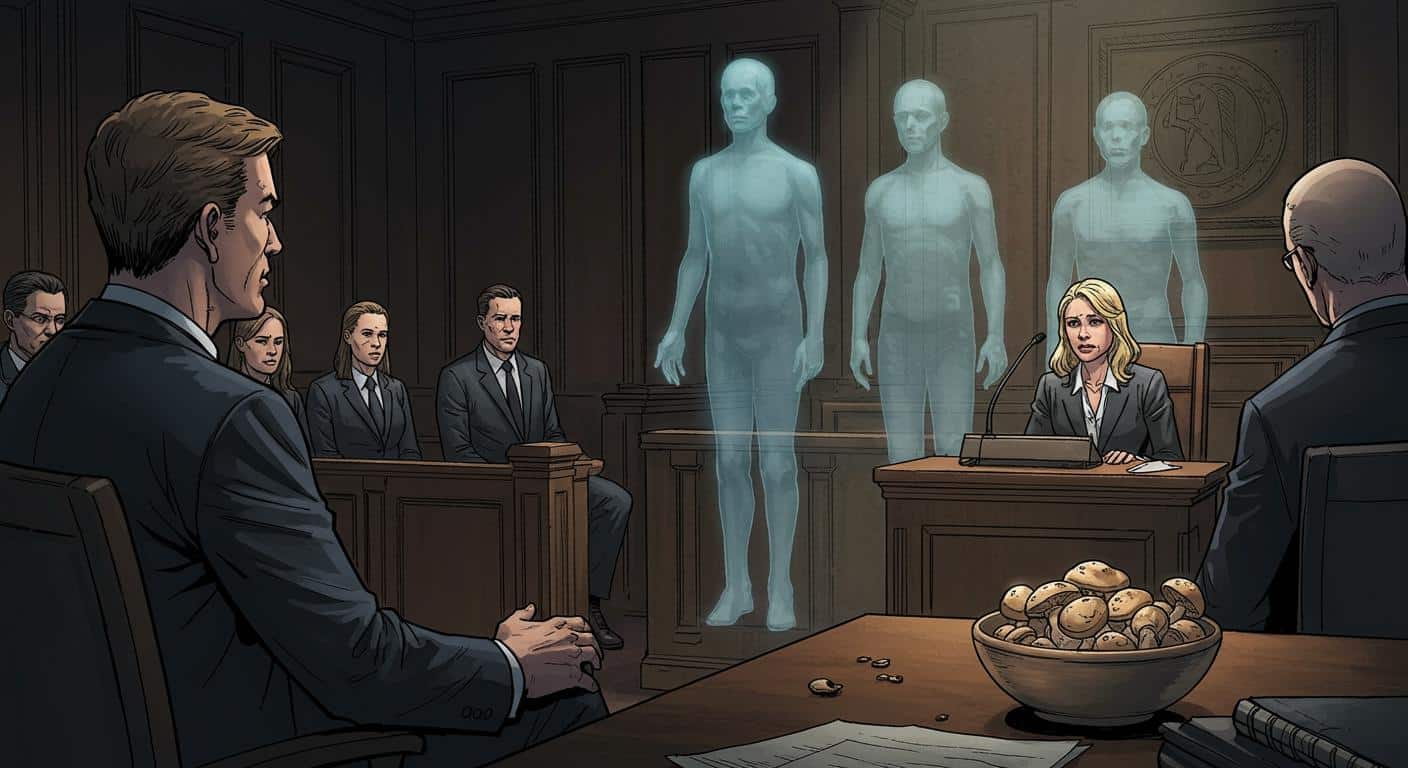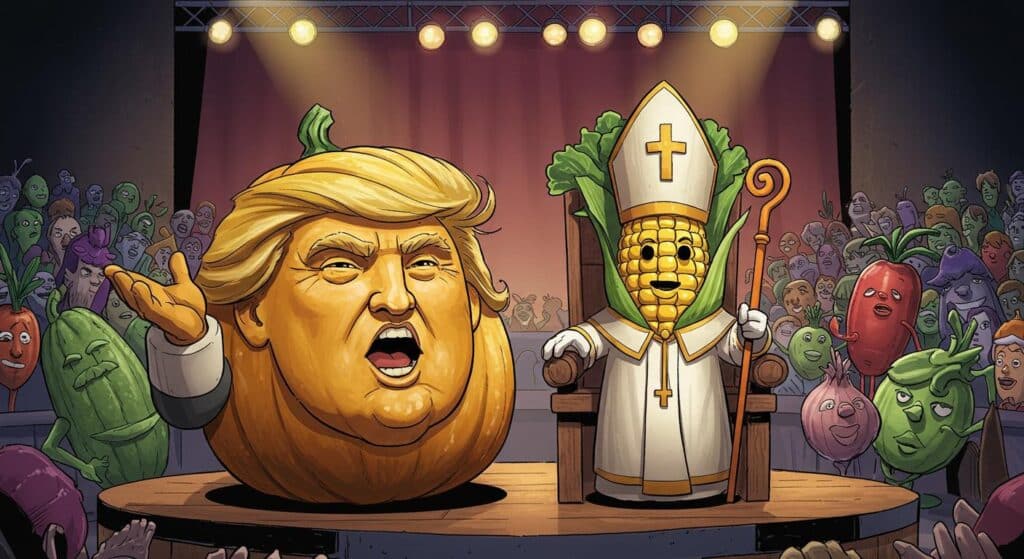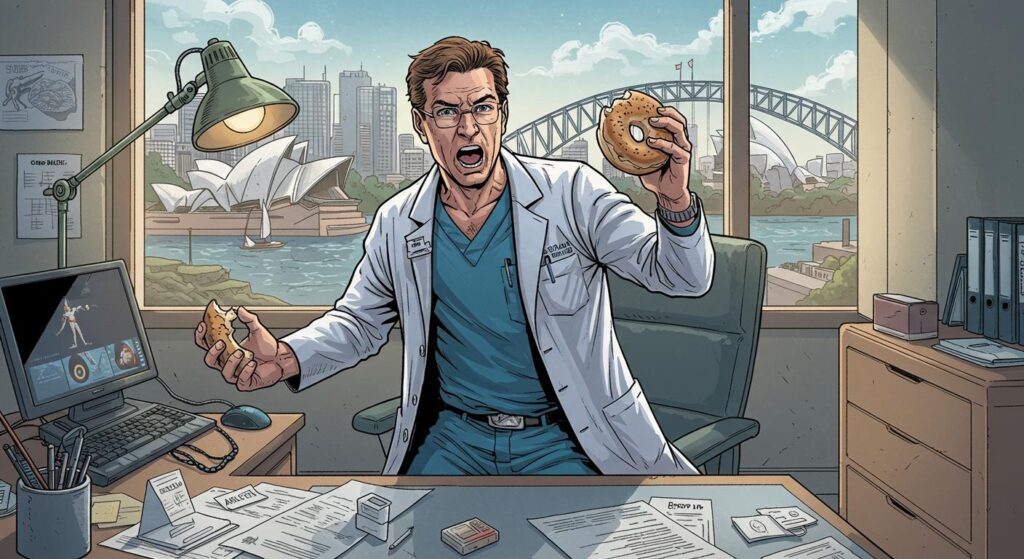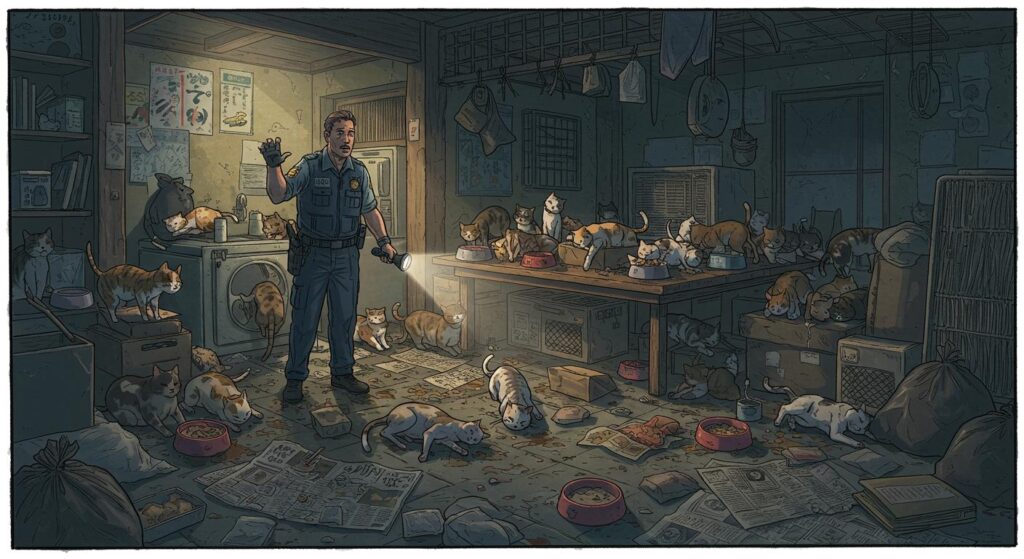For those of us who find human oddity at least as fascinating as fungal taxonomy, the ongoing Erin Patterson mushroom trial is shaping up as a rare specimen. Accusations and evasions abound, tangled together with death cap mushrooms and a surprising number of digital shenanigans—this is a case almost designed for observers of the truly peculiar. If you’ve been waiting for a murder mystery where kitchen gadgets and mycology overshadow moody detectives, the current reporting from NPR, news.com.au, and BBC makes clear: this isn’t your average dinner party disaster.
How a Beef Wellington Became a Horror Story
In July 2023, Erin Patterson cooked beef Wellington for her estranged husband’s parents and their relatives at her home in Leongatha, Australia. The following day, all four guests were hospitalized—three would die within the week from symptoms consistent with death cap mushroom poisoning, leaving only Ian Wilkinson as a survivor. NPR reports that Patterson herself experienced illness as well, though much less severe, and soon found herself under a different kind of scrutiny: a triple-murder trial in the state Supreme Court.
Prosecutors maintain that the use of Amanita phalloides—the infamous death cap—was deliberate, while Patterson asserts it was a tragic, if incredibly convoluted, mistake. The BBC details her repeated denials and shifting accounts throughout her testimony.
Truth, Lies, and a Vanishing Dehydrator
Central to the courtroom drama is Patterson’s relationship with the truth, or at least its flexible cousin. As the NPR article documents, Patterson has now admitted to lying about a supposed cancer diagnosis (the one she claimed was the impetus for the lunch), a foraging hobby that she had previously kept secret, and—perhaps most suspiciously—owning a mushroom dehydrator.
This dehydrator, which was used to preserve wild mushrooms, was quietly disposed of at a local tip—right after her guests grew ill and before authorities arrived at her house. According to news.com.au, when pressed on this point in court, Patterson described the act as a “stupid, knee-jerk reaction… I was just scared, but I shouldn’t have done it.” She also admitted to not telling doctors or investigators about the possibility that the meal contained foraged mushrooms, testifying that “people were getting treatment for possible death cap mushroom poisoning so that was already happening.”
The BBC live updates corroborate these explanations, noting Patterson’s repeated insistence that her impulse to lie and cover up evidence stemmed from panic and fear, not from malicious intent.
Social Media, Two Faces, and Strained Relationships
Delving into the interpersonal side, Patterson’s testimony painted a complex portrait of her relationships with Simon Patterson—her estranged husband—and his parents, Don and Gail. Publicly, she described a strong bond (“they treated me like their own daughter”), a sentiment reiterated in court and highlighted by both NPR and BBC. However, prosecutors introduced a trove of less charitable messages sent by Patterson in private: frustration about financial disputes, expletive-laced venting on Facebook, and skepticism about her in-laws’ involvement in family matters. She claimed the messages were just blowing off steam, but as NPR notes, the prosecution accused her of presenting “two faces.”
Is it ordinary to see sharply divergent private and public personas? Absolutely. Is it reassuring during a murder trial? Well, less so.
Mycology, Mishaps, and a Kitchen Scale
The strange intersection of true crime and do-it-yourself mycology came into sharper focus with the revelation that Patterson had become a devoted mushroom forager during the pandemic. As news.com.au reports, Patterson told the jury she taught herself to identify “field mushrooms and horse mushrooms,” growing confident enough to harvest them regularly and experiment with preservation using her dehydrator.
Prosecutors seized on a particular detail: a photo from Patterson’s phone showing wild mushrooms, later identified by a government mycologist as likely death caps, being weighed on a kitchen scale. The prosecution suggested this was a calculation of a lethal dose, but Patterson firmly denied any such motive, saying she simply enjoyed mushrooms and often bought, foraged, and weighed them out of culinary enthusiasm.
Both news.com.au and the BBC detail how she finally conceded the mushrooms in her beef Wellington may indeed have included some foraged—and possibly deadly—varieties stored with others in a Tupperware container.
Shifting Phones and Shifting Stories
Modern criminal investigations often come with a side order of digital forensics. Patterson’s attempts at managing her phone data (and, possibly, her narrative) are no exception. As the BBC outlines, she factory-reset her phone multiple times after the lunch, at first claiming it was routine or related to damaged hardware, then admitting at least one reset was done specifically to prevent detectives from viewing photos of her mushroom foraging and dehydrator. She also changed phone numbers in the aftermath, explaining this as a response to security concerns regarding her ex-husband’s allegations.
Between these resets and the disposal of the dehydrator, one starts to wonder: is this a case of technological panic or a thoroughly modern cover-up?
What Patterson Ate (and What She Didn’t)
One of the more surreal details to emerge, confirmed across all three outlets, is Patterson’s description of her meal that day. Both NPR, news.com.au, and the BBC report that Patterson said she only ate a small portion of the beef Wellington, instead consuming roughly two-thirds of an orange cake brought by one of her guests. Due to a longstanding history of disordered eating, she claimed, she became “over-full” and vomited—explaining why she was less affected than her guests.
This particular explanation seems to have left most observers, and perhaps the jury, with more questions than answers. Is it plausible? Or just the strangest of convenient timing?
When the Odd Outpaces the Outlandish
Presiding over the proceedings, Justice Christopher Beale quipped, according to NPR, “How long is a piece of string?”—a fitting refrain for a case that keeps stretching into new, tangled territory.
After weeks of public scrutiny and a steady flow of testimony, the cumulative impression is not just of a deadly meal but of a deeply human collision between panic, bad judgment, and the peculiarities of private life. Can a series of small deceptions and impulsive decisions stack up to disaster of this scale? Or—as prosecutors assert—does the persistent oddness and the constellation of evasive acts suggest something more intentional?
As the jury and the public puzzle over details that seem scripted for black comedy, one thread holds: sometimes, the weirdest ingredient at the table isn’t the mushrooms themselves—it’s the strange, unruly logic that can overtake people when disaster strikes. You have to wonder: if this case were fiction, would any editor let it through as even remotely believable?







